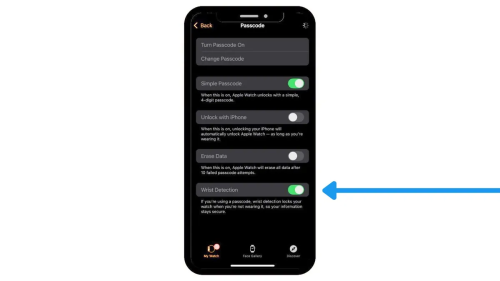Top 10 Productivity Apps Every University Student. When I first got into university, I was hit with a harsh realization: being a good student in high school didn’t automatically make me an organized adult. Between navigating lecture schedules, balancing assignments, keeping up with readings, and trying to maintain some form of a social life, things started to fall apart.
If you’re a student who’s ever felt that panic—that moment when your to-do list is buried under ten unread PDFs and missed deadlines—you’re not alone. But here’s the good news: technology is on your side.
While you can stay productive with a simple notebook and some grit, there’s absolutely no shame in outsourcing your memory to smarter tools. These productivity apps have helped me—and many others—bring some structure to the beautiful chaos that is university life.
Below are 10 of the most effective productivity apps, grouped by what they help you do. Whether you’re a first-year student or in your final semester, these tools can make the difference between surviving and actually thriving.
1. Notion – The Digital Brain You Didn’t Know You Needed
Best for: Note-taking, project planning, life organization
Notion is the “all-in-one workspace” that feels like a blank slate—meaning it’s as powerful as you make it. I’ve used it to manage everything from my semester schedule to freelance gigs, reading lists, and even meal plans.
It has a learning curve, but once you get past that, you’ll wonder how you managed without it. Start with free templates for students—most of them include a course tracker, assignment calendar, and even a habit tracker. The best part? Notion is free for students.
Pro tip: Sync your Notion planner with Google Calendar for a seamless academic overview.
2. Forest – Train Your Focus
Best for: Reducing phone distractions, building concentration habits
Forest uses gamification to help you not touch your phone. When you start a timer, it “plants” a tree. Leave your phone alone and the tree grows. Pick up your phone, and the tree dies.
It’s simple but surprisingly effective. Over time, you can grow a whole virtual forest representing your focus streaks—and even plant real trees through the app’s partnership with tree-planting organizations.
3. Todoist – Your Simple, Smart To-Do List
Best for: Daily task management, priority planning
Todoist is great for when you just need a clean, functional to-do list without the bells and whistles. You can type “Submit essay by Friday” and it automatically schedules it. Type “p1” to assign it as a top priority. It understands natural language, which means less time fiddling with settings.
Perfect for students who want to stay on top of tasks without the overwhelm.
4. Google Calendar – The Most Underused Student Resource
Best for: Scheduling, reminders, time-blocking
Google Calendar is probably already on your phone or laptop, but chances are, you’re not using it to its full potential.
I use it to time-block everything—from classes and gym sessions to study hours and even breaks. It lets you create multiple calendars (e.g., school, personal, work), add Zoom links, color-code events, and sync across devices. It becomes even more powerful when paired with Google Tasks or Notion.
Pro tip: Use recurring events to automate your routine (e.g., “Read textbook every Tuesday at 8 PM”).
5. Pomodoro Timer (Any app works) – Work in Sprints
Best for: Fighting procrastination, managing energy levels
The Pomodoro Technique is simple: 25 minutes of focused work, 5-minute break. Repeat 4 times, then take a longer break.
Apps like Pomofocus or Focus To-Do apply this method with timers, progress tracking, and even focus music. It’s great for tackling readings, essays, or exam prep in digestible chunks.
6. Pocket – Save Now, Read Later
Best for: Saving academic articles, blog posts, videos
You’ll come across dozens of articles and links every week, but it’s unrealistic to read everything on the spot. Pocket lets you save them with one click and access them later—on desktop or mobile—even offline.
Use tags like “Research,” “Career,” or “Mental Health” to organize what you save. It’s one of the best ways to stay intellectually curious without burning out.
7. Google Drive – Your Backup Safety Net
Best for: Storing documents, sharing group work, printing remotely
Google Drive gives you 15GB of free storage and access to Google Docs, Sheets, and Slides—all cloud-based and autosaved.
I use it for group projects, essay backups, and printing from school computers without needing a USB. Bonus: it’s compatible with most learning management systems (like Canvas or Blackboard).
8. LinkedIn – Your Future Career Starts Now
Best for: Networking, job hunting, internship applications
This might seem out of place, but trust me—get on LinkedIn now, not later. The earlier you build a digital resume and start connecting with people in your field, the more opportunities you’ll stumble upon.
You don’t need to post daily. Start by sharing your academic interests, adding coursework or part-time experience, and following professionals or companies that inspire you.
Pro tip: Join LinkedIn student groups and follow job boards. You’ll be surprised how many entry-level internships you find.
9. Google Tasks – Tiny To-Do Lists, Big Impact
Best for: Breaking big goals into micro-tasks
Google Tasks integrates with Google Calendar, making it perfect for students juggling multiple deadlines. You can create lists for each subject, set due dates, and check items off as you go.
It’s minimalist but powerful—great for those who prefer a simple system without too many features.
10. Evernote – Smart Note-Taking for the Detail-Oriented
Best for: Lecture notes, handwritten notes, PDF markup
Evernote is a robust note-taking tool with a built-in search engine that can even read handwriting. You can scan lecture notes, categorize them into folders, and access them on all your devices.
While it’s not as trendy as Notion, it’s still a reliable option, especially for students who prefer structure and indexing.
Final Thoughts: Use What Works for You
No app on this list will magically make you productive. They’re tools—not solutions. Start small. Try one or two apps that fit your current needs, and build a workflow around them.
For me, it started with Google Calendar and Notion. Then I added Forest to fight distractions. Eventually, it all clicked into place.
And here’s a truth they don’t tell you in orientation: university isn’t just about learning subjects—it’s about learning how to learn. These tools just help you do that a bit better.








